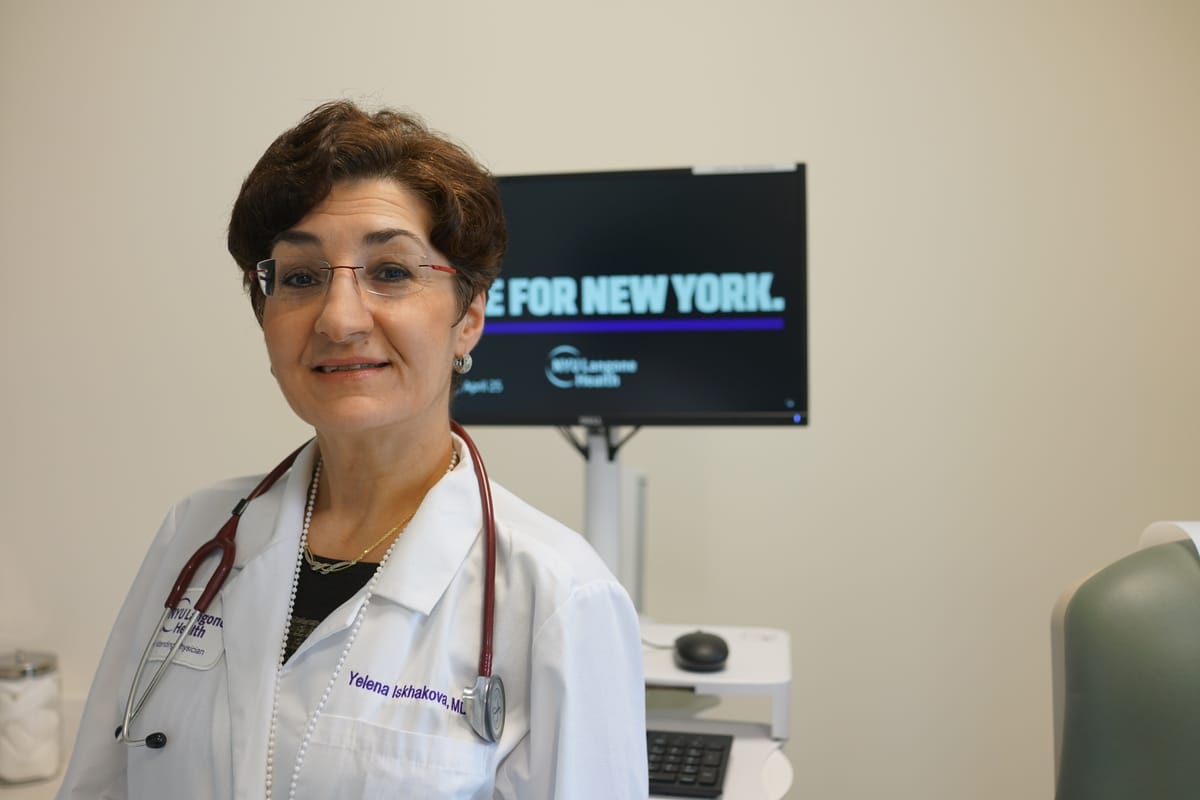Safe Tips for Fun in the Sun

It’s easy to forget, while out enjoying a beautiful sunny day, that prolonged exposure to the sun can be dangerous – not just during the summer but all year long. It can lead to skin cancer.
According to the American Cancer Society, more people are diagnosed with skin cancer each year in the U.S. than all other cancers combined. One in five Americans will develop skin cancer by the age of 70.
“There is an assumption that only fair-skinned individuals are at risk for skin cancer but anyone can get skin cancer at any age – even children,” says Dr. Yelena Iskhakova, a primary care and internal medicine specialist at NYU Langone Medical Associates—West Brighton.

Getting regular health checkups by a primary care physician is a great way to prevent skin cancer or catch it at an earlier stage when it is most treatable. Why? Because primary care physicians are often the first medical point of contact for patients. Essentially they are the gatekeepers of your health.
In addition to assessing a person’s overall health, which includes weight, blood pressure, cholesterol and blood sugar screenings, and offering flu-shots and other age-recommended immunizations, primary care physicians at NYU Langone Medical Associates—West Brighton are also looking at changes in a patient’s skin, such as the development of new moles or changes to existing ones.
“If I see a patient with suspicious marks on their skin, I immediately refer them to a dermatologist within NYU Langone Health’s care network for more extensive evaluation,” says Dr. Iskhakova.
“It is always good to see a physician before you have a medical problem. You don’t want to have a heart attack and later learn that you had uncontrolled high blood pressure and cholesterol, or are diagnosed with an advanced skin cancer when a primary care doctor could have detected sun damage years earlier. That’s why annual visits are so important,” adds Dr. Iskhakova.
There are several types of skin cancer:
Basal cell carcinoma is the most common form of skin cancer. An estimated 4.3 million cases are diagnosed in the U.S. each year, resulting in more than 3,000 deaths.
Squamous cell carcinoma is the second most common form of skin cancer. More than 1 million cases are diagnosed in the U.S. each year, resulting in more than 15,000 deaths.
Melanoma is the deadliest form of skin cancer and rates have increased dramatically over the last three decades. This year, an estimated 178,560 cases of melanoma will be diagnosed in the U.S. An estimated 9,320 people will die. [Source: American Cancer Society]
It is not all doom and gloom. In addition to getting annual checkups, there are ways to protect yourself:
- Always wear a broad-spectrum, water-resistant sunscreen with an SPF of 30 or higher. Sunscreen protects against ultraviolet (UV) radiation, which can damage the skin, age it prematurely, and increase your risk of skin cancer. Apply 15 minutes before you go outside and immediately after swimming or sweating. Make sure to use a generous amount and reapply every two hours. Check expiration dates of the products you purchase.
- Avoid the sun between the hours of 10 am and 4 pm.
- Wear a wide-brimmed hat, which offers protection to your face, neck, and ears. Also wear protective clothing – long-sleeved shirts made from tightly woven fabric (and pants if possible). There are now some companies that manufacture clothes with UV protection.
- Avoid tanning machines.
- Wear UV protective eyeglasses. Make sure they offer protection against both UVA and UVB radiation.
- Regularly check for any new or changes to moles.
NYU Langone Medical Associates – West Brighton is located at 2857 West 8th Street. To make an appointment call 929-455-3060. Same day appointments are often available. Healthcare providers speak English and Russian.

This post was sponsored by NYU Langone Health. If you would like to reach our readers, please contact us.




